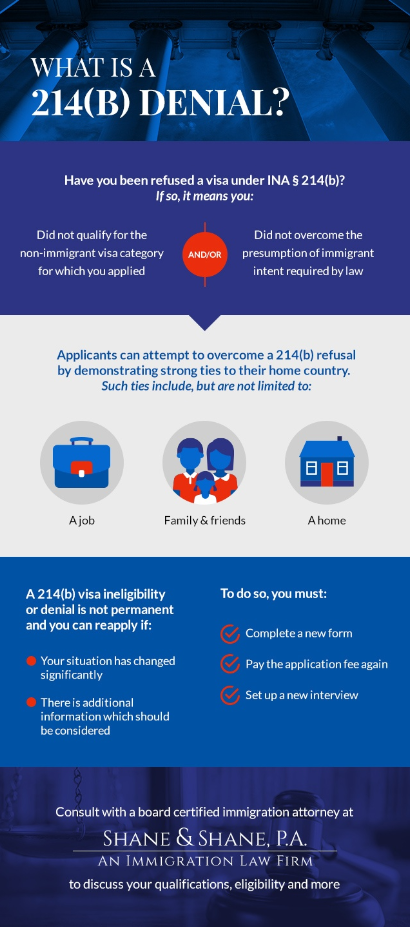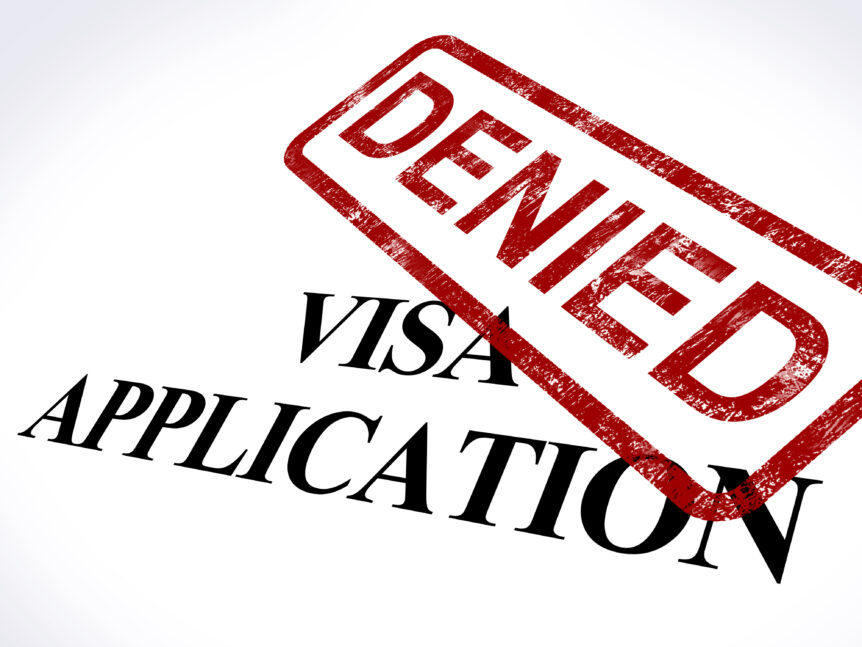 If you received a visa denial under section 214(b), don’t panic. We have answers and you still have options.
If you received a visa denial under section 214(b), don’t panic. We have answers and you still have options.
What Does a 214(b) Visa Denial Mean?
If you are refused a visa under this category, it means one of two things. Either:
- Your application and interview did not sufficiently demonstrate to the consular officer that you qualify for the non-immigrant visa category for which you applied.
OR
2. You did not overcome the presumption of immigrant intent required by law. Applicants must do so by sufficiently demonstrating strong ties to your home country which would compel you to leave the U.S. following your temporary stay.
*It’s important to note that this requirement does not apply to H-1B and L visa applicants, their spouses and any children who are minors
What Constitutes Strong Ties?
The answer can vary by person, depending on your country and particular situation. But in general, strong ties are the parts of your life that bind you to your home country.
This may include:
- Family and friends
- Your home
- Your job
Consular officers evaluate each applicant’s circumstances to ensure departure after a temporary visit and proper usage of the visa.
How Do I Overcome 214(b) Visa Rejection?
Don’t worry, a 214(b) visa ineligibility or denial is not permanent. A refusal is for that specific application. However, once a case is closed, there is no appeal process.
If there have been significant changes to your situation or there is additional information which should be considered, you may reapply. To do so, you must complete a new form, pay the application fee again, and set up a new interview.
Ensuring Success with Your Visa Application
As with all areas of immigration law, it is always best to consult with an immigration attorney to ensure that you proceed with the optimal course of action and maximize your chances of success. The Board Certified immigration lawyers at Shane & Shane are true experts in this arena and there to help you every step of the way.
Contact us today to learn more and set your initial consultation.
Michael Shane and Evan Shane, Immigration Attorneys
Related:

